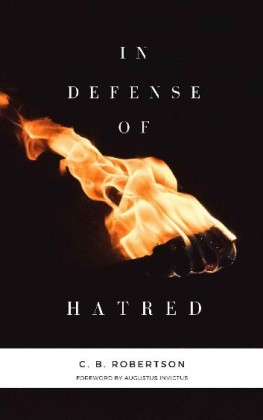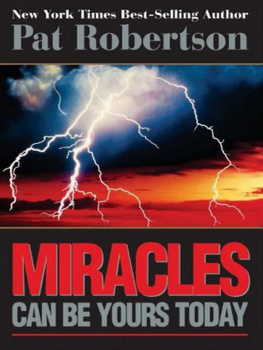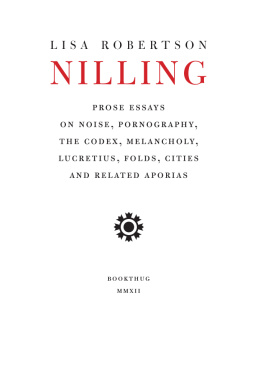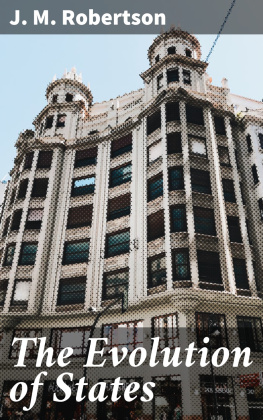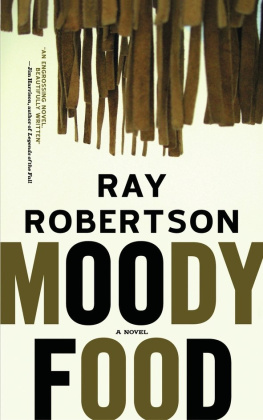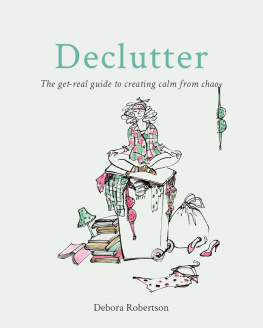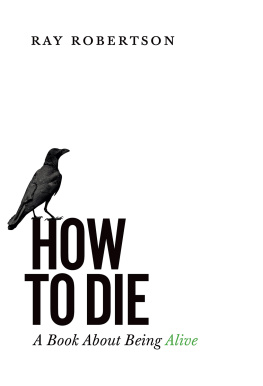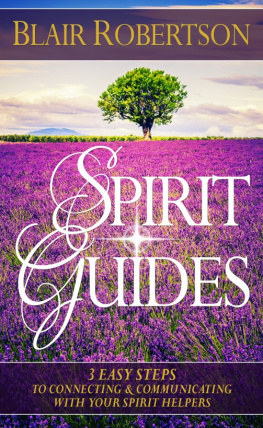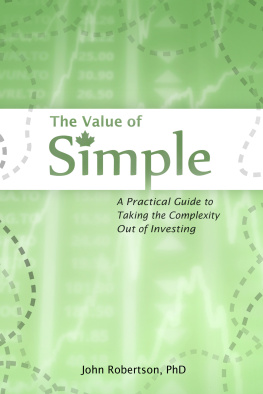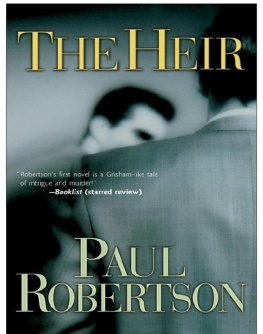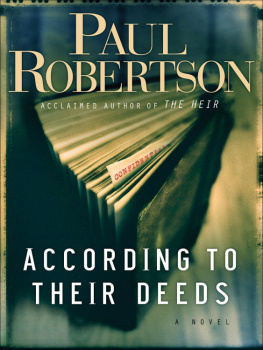C.B. Robertson - In Defense of Hatred
Here you can read online C.B. Robertson - In Defense of Hatred full text of the book (entire story) in english for free. Download pdf and epub, get meaning, cover and reviews about this ebook. year: 2017, genre: Science. Description of the work, (preface) as well as reviews are available. Best literature library LitArk.com created for fans of good reading and offers a wide selection of genres:
Romance novel
Science fiction
Adventure
Detective
Science
History
Home and family
Prose
Art
Politics
Computer
Non-fiction
Religion
Business
Children
Humor
Choose a favorite category and find really read worthwhile books. Enjoy immersion in the world of imagination, feel the emotions of the characters or learn something new for yourself, make an fascinating discovery.
- Book:In Defense of Hatred
- Author:
- Genre:
- Year:2017
- Rating:3 / 5
- Favourites:Add to favourites
- Your mark:
- 60
- 1
- 2
- 3
- 4
- 5
In Defense of Hatred: summary, description and annotation
We offer to read an annotation, description, summary or preface (depends on what the author of the book "In Defense of Hatred" wrote himself). If you haven't found the necessary information about the book — write in the comments, we will try to find it.
In Defense of Hatred — read online for free the complete book (whole text) full work
Below is the text of the book, divided by pages. System saving the place of the last page read, allows you to conveniently read the book "In Defense of Hatred" online for free, without having to search again every time where you left off. Put a bookmark, and you can go to the page where you finished reading at any time.
Font size:
Interval:
Bookmark:
Copyright 2017
All Rights Reserved
ISBN: 9781520526010
Thank you to Augustus and Jack, for your mentorship, whether you knew it or not.
Thank you to Jillene, for your understated guidance.
And most of all, to Sierra. Without your effort, patience, and faith, this book may never have come to life.
Table of Contents
Foreword
A political operative in any day and age is required to pay careful attention to his words. And in a modern, liberal-democratic society, the word hatred is absolutely forbidden.
The exception, of course, is when one is lamenting the hatred promoted or engaged in by the other side. A Democrat can talk all he wants of Republicans who hate immigrants, racial minorities, and women. A Republican can talk all he wants of Democrats who hate America, Jesus, and freedom.
But if I were to say that I hate traitors; if I were to say that I hate the financiers and leftists who have sold out my country; if I said that they deserved the wrath of my hatred what then?
If I were to say that I hate the jihadists not because of their radicalization or their unfortunate circumstance, but because they are an existential enemy that must be annihilated how long would it be before every party leader and talking head in America denounced me as a greater threat to our way of life than the jihadists themselves?
Such is the way of things now. In order to get along in politics, you must wear that mantle of republican hypocrisy and show all the world how reasonable and incapable of hatred you are. So it is that to write the Foreword to a book in defense of hatred is tantamount to political suicide.
At first, Mr. Robertson had asked for nothing more than my constructive criticism of his manuscript. Having ten thousand things to do at any one point in time, I decided to speed read the manuscript over breakfast one morning, expecting to make nothing more than corrections to stylistic flaws and points of grammar.
Imagine my surprise when I realized that a work of monumental importance had just fallen into my lap. I still ended up reading the entire book in a single sitting over breakfast, but not because I was speed reading something on my action-item list: it was because I was absolutely engrossed.
Mr. Robertson has not just given us an excellent writing; he has done us all a much greater service. In resurrecting hatred as a virtue of a strong people, he has restored an essential part of human nature long-suppressed by the present cultural paradigm.
Hatred as a virtuea moral good, as Mr. Robertson calls itis indeed counterintuitive to a people who have been conditioned for generations to value tolerance as the summum bonum . Needless to say, the very thought of hatred as a virtue is an abomination to anyone who cherishes love.
Ah, but only at first blush, Dear Reader. For as Mr. Robertson points out, hate is born of love.
If you do not hate that which harms those you love, then you do not really love them. I am reminded of a fire-and-brimstone preacher who harangued us all on the campus of the University of South Florida. I was young and stupid at the time and had not yet learned the wisdom of picking my battles.
So I would argue with him about the text of the Bible, about the theology behind it, about the morality of Christianity, and everything else. God only knows what we fought about; it was too inconsequential for me to remember. But there was one point he made that I will remember for the rest of my life. In speaking of his hatred of sin he said, If my child has cancer, then I hate that cancer. I hate the cancer because it is killing the child I love.
I have thought about that preachers words for about a decade now. But it was not until reading In Defense of Hatred that this primal sentiment was finally given a coherent voice and a constructive channel. That breakfast with this book was a Eureka! moment for me like no other. This is one of those books that give a framework for something you have felt intuitively all your life but have never been able to put into words.
For this I am in Mr. Robertsons debt. We all are.
Augustus Sol Invictus
Orlando, Florida USA
Imbolc MMXVII
Introduction
They say you never forget your first love. I can remember my first hate [] with real vividness, and the feeling that it was a strong motivator to write. It wouldnt be an interesting one to share with you, but I can remember it very well, and its how I learned an important distinction: many people are fond of saying its more important to generate light than heat. You may have heard this wised-up remark made by people. It sounds so judicious, doesnt it? Poppycock, of course. I mean there is no other source of light but heat. Where else could light come from, but heat, if you think about it? Totally false distinction, just like the people who say that if youre strongly motivated, or if you have an investment of that kind in the subject, that you wont be detached or objective about it. I think thats quite untrue too. You can be in a rage and be perfectly cold and controlled, at least you should aim to be. I spend most of my time in an extremely bad mood, and I hope it shows, hoping really just to deprive people of whatever happiness they may be able to get from living with their illusions.
Christopher Hitchens, 1997
A few years ago, the premise of this book was as foreign to me as it probably is to most people. The concept didnt occur to me even as the seeds were being planted in my brain, listening to Christopher Hitchens defend hate speech at the University of Toronto (youll know you are listening to the right one if he begins, Fire! Fire, fire, fire...) . But eventually the question had to be asked: why do we seem to unanimously hate hatred? How did we all agree on that?
The question is not dissimilar from a more specific question: why do we generally agree that hate speech should be avoided, or even banned? Because of the similarities and crossovers between the former emotion (hatred) and the latter action (hate speech), we can expect there to be some similarities between the justifications for hate speech and the justifications for hatred itself.
The question being argued, in Hitchens case, was whether freedom of speech allows for the freedom to hate. The normal arguments were advanced by the opposition: hate speech begets hateful action, just think of the Jews, think of the American blacks. Think of the homosexuals. Think of all the victims. Hitchens main argument, distilled into a simple question, was, who gets to decide? Choosing the judge of what counts as hatred has always proven to be an impossible task to complete objectively, and the power of deciding was often abused by misinformed judges, or even hateful people themselves.
To add metaphor to analogy, consider the quintessential example of a proper limit to otherwise free speech. The famous supreme court Justice Oliver Wendell Holmes Jr. offered the argument that even the most stringent protection of the plaintiffs first amendment rights would not allow him to falsely shout Fire! in a crowded theater, on the grounds that it would pose a clear and present danger to the surrounding public, and therefore ought to be treated not as speech, but as an action.
The famous fire in a crowded theater test comes from a 1919 Supreme Court case Schenck v United States regarding the printing and mailing of pamphlets to eligible draftees, which condemned the draft as a violation of the rights of citizens, rights which citizens had a duty to defend. These pamphlets were deemed, by the court, to be a clear and present danger, as they were printed in a time of war, and potentially adversely threatened the war effort.
There are three important circumstances to remember about this case.
First, the argument was never literal, but an analogy, and a poor one at that. Charles Schenck was not in a theater, nor shouting fire! nor causing anything like the clear and present danger we imagine in the theatrical thought experiment. His crime was to have disagreed with Americas involvement in WWI, distributing pamphlets to young men urging them to join him in abstaining from the draft. Given that the harms to the United States, or to anybody else, were uncertain, ambiguous, and suspended somewhere beyond the moment or the immediate future, it would be impossible to argue that Schencks actions constituted either a clear or a present danger, let alone both. If America was harmed by a lack of voluntary soldiers, then surely being in the war constituted an equally valid threat to the soldiers themselves, a threat worthy of discussion. And the distribution of pamphlets is itself hardly a fast or decisive action. Present dangers, in theory, do not allow for free speech because there is not time to reason through the arguments for and against (like a real fire, in a real theater). So not only was the Justices opinion an argument by analogy, but an argument by bad analogy. It was, in fact, completely illegitimate by the analogy-makers own standards for it being analogous at all.
Next pageFont size:
Interval:
Bookmark:
Similar books «In Defense of Hatred»
Look at similar books to In Defense of Hatred. We have selected literature similar in name and meaning in the hope of providing readers with more options to find new, interesting, not yet read works.
Discussion, reviews of the book In Defense of Hatred and just readers' own opinions. Leave your comments, write what you think about the work, its meaning or the main characters. Specify what exactly you liked and what you didn't like, and why you think so.

